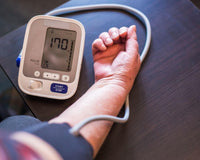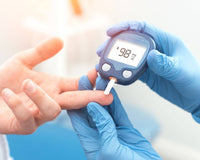Divalproex Brand Name, Dosage, Interactions, Side Effects, And Uses
Divalproex is an anticonvulsant drug that works in the brain to stop seizures. It can also be used to alleviate sympotoms during the manic phase of bipolar disorder and prevent migraine headaches. In the following 2-minute article, we discuss the divalproex dosage, and the side effects, interactions, and warnings of divalproex. We also answer the questions what is divalproex sodium and what is divalproex used for. Learn more about this anticonvulsant medication.
Divalproex Brand Name
The brand name forms of divalproex include Depakote, Depakote ER. As Depakote, divalproex comes in the following three forms:
- Oral release tablet
- Oral extended-release tablet
- Oral delayed-release capsule
What Is Divalproex?
Divalproex is a prescription medication used to treat multiple types of seizures. It is an anticonvulsant medication that works by increasing the amount of gamma-aminobutyric acid in the brain.
Divalproex Pronunciation
The pronunciation for divalproex can be written out as dee-val-pro-ex.
What Is Divalproex Sodium?
Divalproex sodium is a oral form of divalproex used specifically to treat seizures. Divalproex sodium is often mistaken for Dapekene (Valporic Acid) because they are both used to treat seizures.

Most clinicals consider divalproex sodium a more effective treatment for seizures than valporic acid.
What Is Divalproex Used For?
Divalproex is primarily used to treat seizures, including tonic-clonic and complex partial seizures. It has also proven useful in the treatment of bipolar disorder and migraine headaches.
Divalproex Side Effects
Divalproex does have some potential side effects. Some are common; others may be serious and less common.
Common Side Effects
The common side effects of divalproex include the following:
- Abdominal pain
- Back pain
- Infection
- Indigestion
- Headache
- Dizziness
- Tremor
- Weakness
- Hair loss
- Weight gain
If these side effects are mild, they may disappear within a few days. If you have stopped taking your medication and the effects are still present, talk with your doctor or pharmacist.
Serious Side Effects
Some side effects of bumetanide are serious and may require medical attention. If you are experiencing any of the following serious side effects, contact your doctor or immediately. Call 911 if you think your symptoms are life threatening.
- Blurry vision
- Double vision
- Hypothermia
- Trouble speaking
- Shivering
- Slowed speech
- Bruising easily
- Excessive bleeding
- Suicidal thoughts
- Worsening depression
- Mood or personality changes
- Loss of interest in daily activities
Disclaimer: Here at Manifest Pharmacy, our goal is to provide you with the most relevant and current information. However, because drugs affect each person differently, we cannot guarantee that this information includes all possible side effects. This information is not a substitute for medical advice. Always discuss possible side effects with a healthcare professional who knows your medical history.
How To Take Divalproex
It is important to take divalproex as instructed by a doctor or medical professional. Divalproex sodium should be taken with food. The delayed or extended-release tablets of divalproex should be taken whole with a drink of water.
Divalproex Dosage
Your dosage of divalproex can vary depending on many factors, including the following:
- Your age
- Your weight
- Severity of seizures
- Type of seizures you experience
Divalproex Dosage For Mania
Adult: 750mg per day, taken in divided doses. Your doctor may increase the dose as needed. Maximum dosage should not exceed 60mg per kg of bodyweight per day.
Divalproex Dosage For Migraine
Adult: 250mg twice per day, taken in divided doses. Your doctor may increase the dose as needed. Maximum dosage should not exceed 1000mg per day.
Divalproex Dosage For Seizures
Adult And Children 10+: Dose is based on body weight and must be determined by a doctor. Dosage is usually 10-15mg per kg of bodyweight per day. Your doctor may increase dosage gradually every week as needed. Dosage should not exceed 60mg of divalproex per kg of body weight per day.
Divalproex Warnings
Divalproex carries a black box warning. This is the most serious warning issued by the Food And Drug Administration (FDA). Talk to your doctor or another medical professional about possible serious side effects before taking divalproex.
Divalproex Liver Damage Warning
Taking divalproex can result in serious liver damage that can even be fatal in small children. Your risk of liver damage may be higher during your first 6 months of taking divalproex. Your docotor will monitor you closely for symptoms of liver damage and liver failure while you are taking divalproex.
Divalproex Birth Defects Warning
This drug may cause serious side effects when taking while pregnant. Taking divalproex during pregnancy can significantly increase the risk for birth defects. Furthermore, these defects can set in during the first month of pregnancy, before you are aware you are pregnant. It is not advisable to take divalproex while pregnancy, under any circumstances.
Pancreatitis Warning
Divalproex can cause severe inflammation of the pancreas, otherwise known as pancreatitis. In some cases, pancreatitis can even be fatal. If you experience any symptoms of pancreatitis while taking divalproex, such as sever stomach pain, rapid heart rate, or uncontrollable vomiting, talk to your doctor immediately
Divalproex Interactions
Divalproex may interact with the follow medications, resulting in unwanted negative side effects.
Anesthetic Drugs
Taking anesthetic drugs like propofol in conjunction with divalproex sodium can increase the levels of propofol in your body. If you need to take these drugs together, your doctor will likely decrease your dosage of anesthetic drugs.
Antiseizure Drugs
Taking antiseizure drugs with divalproex sodium may increase the level of divalproex sodium in your body and increase your risk of side serious effects. If you are considering taking seizure drugs such as felbamate with divalproex sodium, your doctor may adjust your dosage of divalproex sodium.
Antiseizure And Migraine Medications
Taking other antiseizure and migraine prevention drugs with divalproex sodium may increase your risk of high ammonia levels in your blood and hypothermia. If you’re taking these drugs together, your doctor should monitor your blood ammonia levels and temperature.
Aspirin
Taking aspirin with divalproex sodium may increase the level of divalproex sodium in your body and increase your risk of serious side effects. If you take aspirin with divalproex sodium, your doctor may adjust your dosage of divalproex sodium.
Blood Thinning Drugs
Taking blood thinning drugs such as warfarin with divalproex sodium may increase the levels of warfarin in your body. This can also cause your blood to become dangerously thin, resulting in side effects light fainting and anemia. Your doctor may monitor your blood pressure more often if you need to take divalproex sodium together with warfarin.
Carbapenem Antibiotics
Taking these drugs with divalproex sodium may decrease the level of divalproex sodium in your body. If you have to take a carbapenem antibiotic while taking divalproex sodium, your doctor will monitor your blood levels closely. Examples of these antibiotics include:
- ertapenem
- imipenem
- meropenem
Hormonal Birth Control
Taking some birth control medications with divalproex sodium can lower the amount of divalproex sodium in your body, making it less effective. If you need to use hormonal contraception while taking divalproex, such as the pill, your doctor will likely monitor the amount of divalproex sodium in your body.
Mood Disorder Drugs
Taking certain mood disorder and seizure drugs with divalproex sodium may increase the levels of these drugs in your body. Your doctor may adjust your dosage of these medications or monitor you more closely for side effects. Examples of these drugs include:
- amitriptyline/nortriptyline
- diazepam
- ethosuximide
- lamotrigine
- phenobarbital
- phenytoin
- primidone
- rufinamide
Taking other mood disorder and seizure drugs with divalproex sodium may decrease the level of divalproex sodium in your body. This means that it may not work as well to treat your condition. Your doctor may adjust your dosage of divalproex sodium. Examples of these drugs include:
- carbamazepine
- phenobarbital
- phenytoin
- primidone
Tuberculosis Drug
Taking certain tuberculosis drugs such as rifamprin in conjunction with divalproex sodium may decrease the level of divalproex sodium in your body. This means that it may not work as well to treat your condition.
Divalproex Brand Name, Dosage, Interactions, Side Effects, And Uses: Summary
Divalproex is a prescription medication used to treat seizures, including tonic-clonic seizures and complex partial seizures. It is available as the brand name drugs Depakote and Depakote ER.








